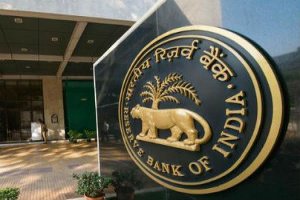Reserve Bank of India released the final ‘enabling framework for regulatory sandbox,’ taking into account inputs received after a consultation process that began in April. The framework will likely be a positive step for financial technology start-ups and companies looking to innovate in the fast changing and highly regulated sector. The regulatory sandbox allows live testing of new products or services in a controlled or test regulatory environment.
Daily Current Affairs Quiz 2019
The regulators may or may not permit certain regulatory relaxations for the limited purpose of testing, the RBI framework says. Essentially, if a fintech company’s business model requires interface with a core banking system for example, a real-time and scaleable model of it will be made available to the testing teams.
This will be done for them to simulate whether the data flow and transaction flow follows the regulatory guidelines. All this in a secure environment.
The move by the RBI had received a largely positive response from most financial technology (fintech) firms, which welcomed the chance to be able to test their products in the initial stages or before launch. Another issue with the proposed guidelines was, however, the limitation of allowing testing to 10-12 selected entities at a time. The final version has not specified the number of entities that will be allowed testing at a time.
“The focus of the RS (regulatory sandbox) would be narrow in terms of areas of innovation, and limited in terms of intake. The RS shall begin the testing process with a few select entities through a comprehensive selection process as detailed in the framework under ‘Fit and Proper’ criteria for selection of participants in RS. The decision of the RBI on the application shall be final,” the final framework document said. The size of groups that will be allowed to use the regulatory sandbox and the window for submission of applications will be announced later, RBI said.
The guidelines, however, stuck to their earlier stance of keeping cryptocurrency or crypto assets services, trading, investing or settling in crypto assets and initial coin offerings,out of the regulatory sandbox.
Last month, a government panel had recommended outright banning of private cryptocurrencies in India, with imprisonment of upto 10 years for anyone dealing in them, and the RS framework seems to be continuing on the same lines.
Start-ups had, in April, raised concerns about the impact this could have on testing of distributed ledger technology, which is considered the future of financial services and banking.
The government committee had recommended that the technology behind cryptocurrency – distributed ledger techonology (DLT) – whose most common application is block chain, can be of great benefit to India in several financial and non-financial areas. These include trade financing, lowering the costs of KYC and improving access to credit.
The regulatory sandbox framework also identifies “applications under block chain technologies” as innovative technology.
Regulatory sandbox is usually seen as a positive across the world.
The disadvantages to this are the fact that innovators can lose some flexibility in testing their products as well as the fact that it can actually take some time to get complete authorisation to use a sandbox.
Also, post testing, the innovators may still require regulatory approvals to launch the product.
